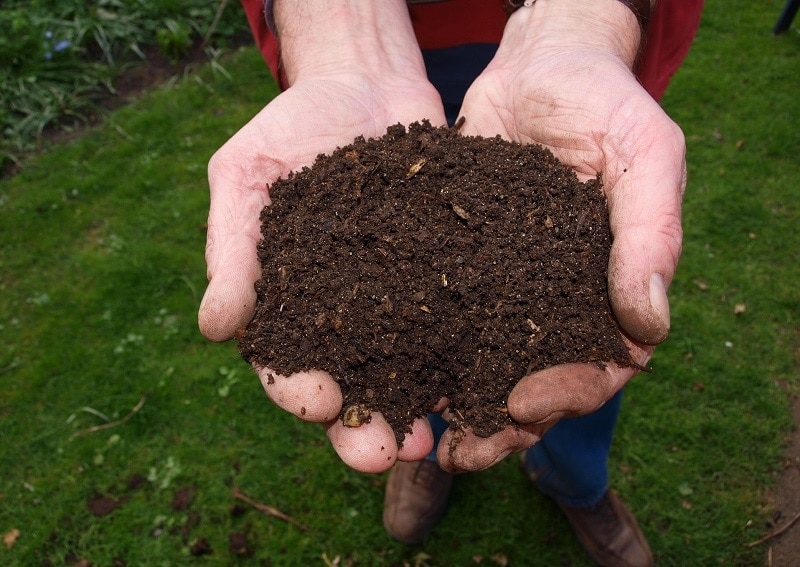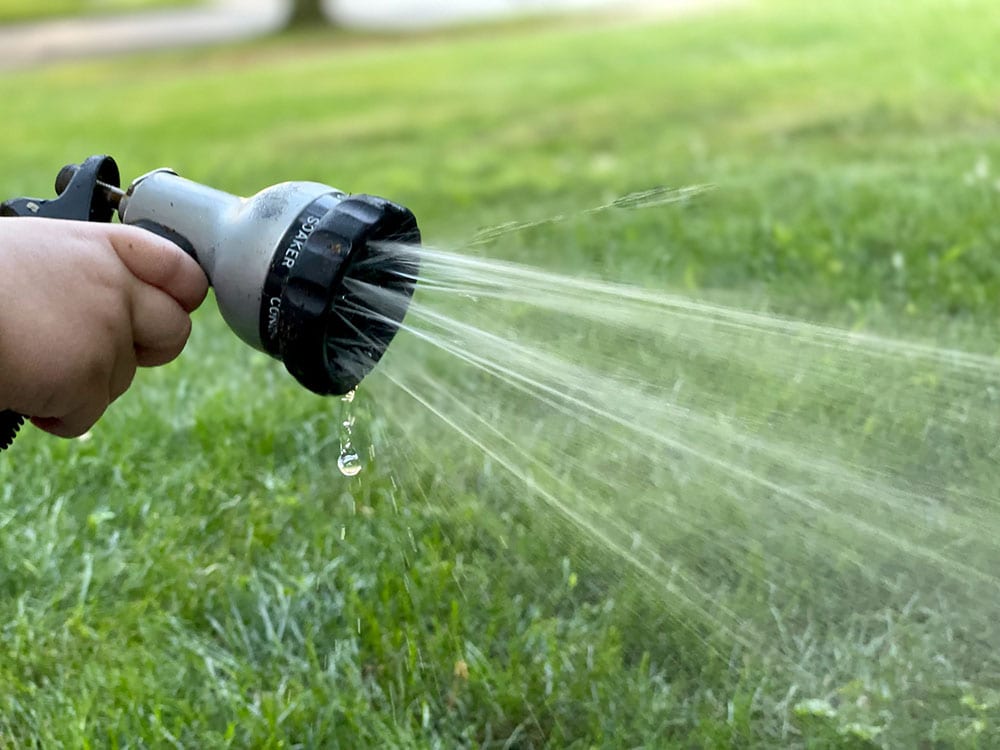Can You Over-Fertilize Your Lawn? Facts & FAQ
-
- Last updated:

If you want the best-looking lawn in your area, there’s a good chance that you’re doing everything that you can to keep the grass growing. Many homeowners choose fertilizer to help their lawns along.
But while a certain amount of fertilizer can help the lawn stay lush and green, too much can have the exact opposite effect. You can absolutely over-fertilize your lawn. Here, we break down how you can tell if you used too much fertilizer and what you can do to help your lawn recover.

Can You Over-Fertilize Your Lawn?
Yes, you can. Fertilizer adds nutrients to the soil, but the soil needs the right amount of nutrients. More isn’t always better, as it can overload the soil and kill it.
When you’re trying to grow anything, you need to find the right balance, and over-fertilizing is typically worse than not fertilizing at all!

How Can You Tell If You Over-Fertilized Your Lawn?
There are a few different signs that you over-fertilize your grass. For starters, if you can see a crusting of fertilizer on top of the lawn, you put way too much on it. In fact, if you see this much, you need to immediately remove as much of it as possible; otherwise, you’re likely to kill your entire lawn.
Other, more subtle signs of an over-fertilized lawn include brown or yellowing grass, dying roots, darker spots of lawn, and slower-than-usual lawn growth.
Can You Fix an Over-Fertilized Lawn?
While there’s not much that you can do to help with an over-fertilized lawn, you don’t have to just sit by and wait for it to die. First, see if you can remove any of the fertilizer. Do note that this only works if you notice the problem right away.
Second, water the lawn more than usual. This will help work the fertilizer deeper into the soil, and the farther down that you can get it, the less it will affect the roots of the plant. Keep watering each day to dilute the fertilizer and push down as deep as possible.
From there, though, all you can do is wait and hope for the best. It’s not an easy mistake to recover from, but it can be a learning experience so you won’t do it again.

Do You Need to Fertilize Your Lawn?
This depends on your area. If grass naturally grows in your area, there’s a good chance that you don’t need to fertilize your lawn. In fact, fertilizing your lawn might only mean you need to cut the grass more often.
However, if you live in an area with compacted soil under the sod or where grass can’t grow naturally, you’ll need to fertilize the lawn to keep it alive.
How Often Should You Fertilize Your Lawn?
If you need to fertilize your lawn, we recommend using a slow-release fertilizer in the early spring. With this, you’ll only need to fertilize your lawn once a year, which means less work for you and better results overall.
If you go for an instant-release fertilizer, you might need to fertilize your lawn every 4 to 6 weeks. The easiest way to check how often you should fertilize your lawn is to look at the recommendations on the product that you’re using.
Follow the instructions on your specific fertilizer for the best possible results.

How Much Fertilizer Should You Use on Your Lawn?
This comes down to the fertilizer product that you’re using. Read the application instructions carefully, as these should break down exactly how to apply the fertilizer to your lawn.
Follow the instructions exactly, regardless of what you have done with other brands in the past. Each fertilizer has its own blend-and-release formula, and this affects how much and how often you should fertilize.

Final Thoughts
Now that you know how important it is to fertilize your lawn correctly, be sure to read through all the instructions that come with the fertilizer that you’re using. This way, you won’t accidentally kill your grass while you’re trying to get the best-looking lawn in the neighborhood!
Featured Image Credit: Mabeline72, Shutterstock
Contents

